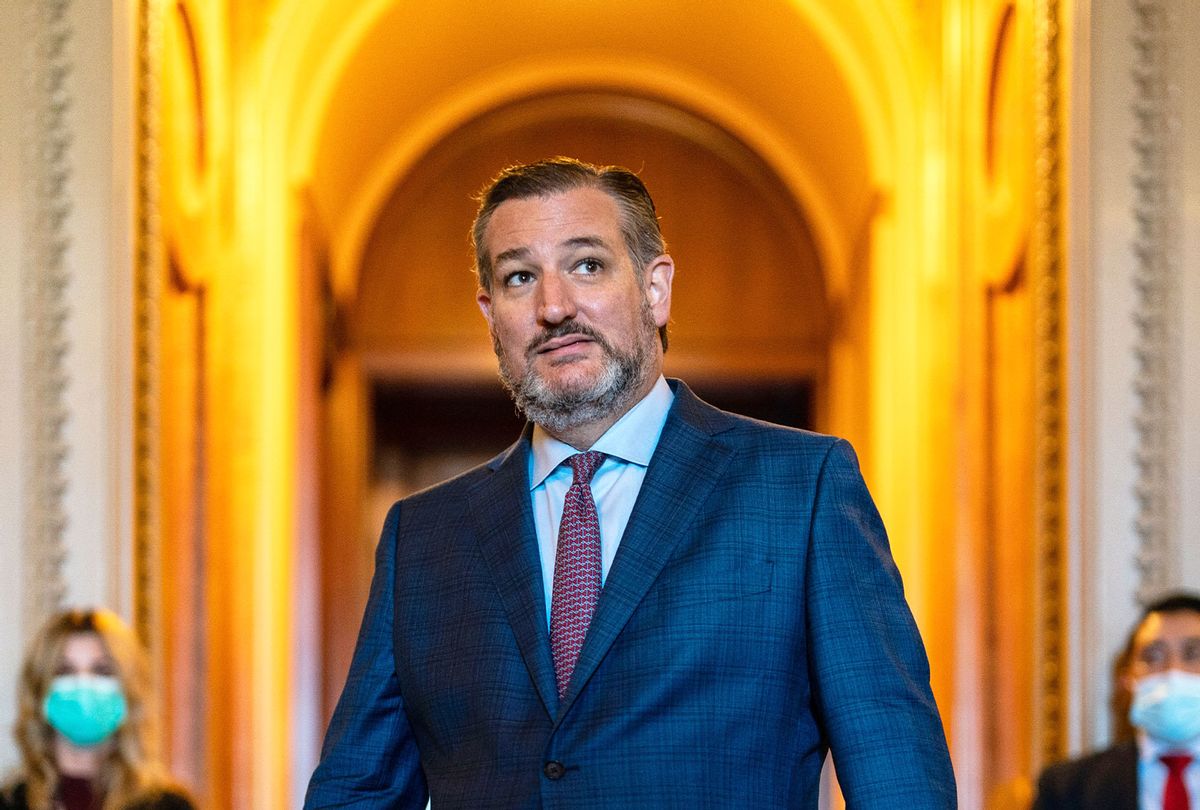How Ted Cruz gets around a key campaign finance rule

Under U.S. campaign finance law, candidates can directly donate no more than $2000 per election to other candidates. But Sen. Ted Cruz of Texas, journalist Roger Sollenberger reports in the Daily Beast, found a way around that when he “poured a staggering $137,183 into the House campaign for Cassy Garcia, his former staffer turned Texas congressional candidate.”
“Along the way, the tendentious Texan — who regularly pushes campaign finance boundaries and is currently challenging the federal election regulator in the Supreme Court — broke new ground, assuming unlimited spending powers and raising campaign finance red flags,” Sollenberger explains in an article published on March 22. “Cruz’s last-minute blitz paid off. His six-figure spending helped Garcia get through the Republican primary to a May 24 runoff. And Cruz’s support may have played a pivotal role, because none of Garcia’s campaign finance reports show a dime spent on promotion: no advertising, no digital marketing, no signs, no mailings, no call lists, no get-out-the-vote efforts. Just a $600 website.”
According to Sollenberger, Cruz’s “move appears unprecedented.”
“If it seems illegal, technically, it probably isn’t,” Sollenberger notes. “At least, it probably isn’t illegal as long as the senator and his former deputy state director never ‘coordinated’ on the spending — a broad term, which also applies to candidates and super PACs.”
Sollenberger goes on to explain how Cruz got around the $2000 limit.
“Federal rules restrict the amount of money that campaigns can give directly to each other, to a surprising degree: $2000 for the primary, and another $2000 for the general,” Sollenberger notes. “That’s less than the limits on individual donors, who can give a combined total $5800. But the rules don’t put a cap on how much money campaigns can spend on indirect types of support, known as ‘independent expenditures.’ This means that a campaign can theoretically spend millions of dollars on advertisements or marketing efforts to back a friend’s campaign — or to attack a friend’s opponent.”
Sollenberger continues, “Essentially, Cruz cut out the middleman. His campaign committee, Ted Cruz for Senate, shoveled tens of thousands of dollars into the kinds of promotional efforts that those $2000 donations would typically help fund, the same way a super PAC supplements an official campaign. The spending kicked off on February 23, a week before primary day, when Ted Cruz for Senate shelled out the first $64,800 — $40,000 on GOTV door-knocking; $24,500 for two media buys; and a final $300 for printing and design. The next day, the campaign dropped $40,000 on web services, $9306 on printed materials, and $16,200 on GOTV phone calls and text messages. The spree wrapped up with another $5000 media buy on February 25, and an $1877 kicker for media and travel on February 28.”
According to attorney Caleb Burns — who Sollenberger describes as an expert on campaign finance law — Cruz’s actions on behalf of Garcia are unusual but appear to be legal.
Burns told the Beast, “Candidates typically reserve campaign funds for themselves and rely on other vehicles to make independent expenditures. For example, candidates and officeholders could use their leadership PACs — which cannot be used to support the candidates’ or officeholders’ own elections — to make independent expenditures in support of other candidates. And since Citizens United v. FEC, allied super PACs and other organizations are making independent expenditures too.”

